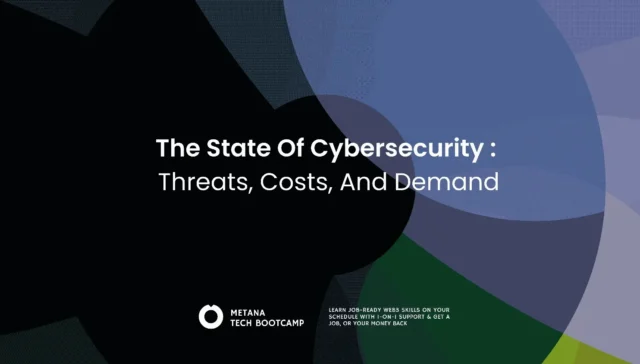Solidity: What Is It?
Solidity is a computer language that’s used to make smart contracts. Smart contracts are computer programs that run accounts on the Ethereum state. Solidity was made to work with the Ethereum Virtual Machine (EVM) and is influenced by languages like C++, Python, and JavaScript. It’s a popular language for creating decentralized applications (DApps) on the Ethereum platform. Here are some examples:
Smart contracts: These are contracts that run by themselves on the blockchain. You can use them to make decentralized apps (DApps) for things like social media, games, and finance.
Ethereum Virtual Machine (EVM): The EVM is a complete virtual machine that’s inside every Ethereum node. It runs smart contracts.

How do you get started with solidity?
To get started with Solidity, learn the basics of the language and the Ethereum Virtual Machine (EVM). Write simple smart contracts, use Solidity IDEs, and engage with the Solidity community for support and knowledge sharing. Continuous practice and exploration will help you become proficient in Solidity and smart contract development on Ethereum.
Here are some of the resources that you can use to get started with Solidity:
- The Solidity documentation: This is the official documentation for Solidity. It provides a comprehensive overview of the language, including its syntax, features, and libraries.
- The Solidity subreddit: this is a forum where you can ask questions, get help, and learn from other Solidity developers.
- The Solidity Discord server: this is a chat server where you can ask questions, get help, and learn from other Solidity developers.
- The Remix IDE: This is a web-based IDE that you can use to write, compile, and deploy Solidity code.
- The Visual Studio Code extension for Solidity: This extension provides syntax highlighting, code completion, and other features for Solidity code in Visual Studio Code.
What Advantages Do Learning Solidity Possess?
There are several reasons why learning Solidity is advantageous. First off, programmers with experience in other programming languages like C++, Python, and JavaScript will find Solidity to be reasonably simple to master. This is due to the influence these languages have on Solidity. Second, decentralized apps (DApps) can be created using the strong language Solidity. DApps are programs that operate on the blockchain and are not governed by a single entity. They are therefore perfect for applications that call for trustless or open transactions. The need for Solidity developers is also increasing as more companies seek to develop DApps on the Ethereum platform.
These particular advantages of knowing Solidity are provided as examples:
- Simple to learn: If you are already comfortable with other programming languages, you should find Solidity to be rather simple to learn. You will be able to learn the syntax fast because it is comparable to C++, Python, and JavaScript.
- Strong: You may create a wide range of decentralized apps using the strong programming language Solidity. Along with social networking and games, this also encompasses financial services.
- In-demand: As more companies try to create DApps on the Ethereum platform, demand for Solidity engineers is rising. For developers of Solidity, this indicates a large pool of employment options.
Learning Solidity is a wonderful place to start if you’re interested in a career in blockchain development. Decentralized apps can be created with the help of the potent language Solidity, and demand for Solidity programmers is rising.
What fundamental differences exist between Python and Solidity?
- Python and Solidity are both object-oriented programming languages that have a lot in common with each other in terms of syntax and semantics. It may be challenging for people to comprehend the key differences due to these important variances. The two languages do, however, have some significant distinctions.
- Smart contracts can be implemented using Solidity, a curly-bracket, statically typed programming language. Accounts within the Ethereum state are governed by smart contracts, which are computer programmes. JavaScript, Python, and C++ all have an impact on Solidity. It is intended to work with the Ethereum Virtual Machine (EVM), a Turing-complete virtual machine that is installed on each Ethereum node.
Here is a table that summarizes the key differences between Solidity and Python:
| Feature | Solidity | Python |
|---|---|---|
| Type system | Static | Dynamic |
| Syntax | Curly brackets | Indentation |
| Influences | C++, JavaScript, Python | C, C++, Java |
| Virtual machine | Ethereum Virtual Machine (EVM) | None |
| Applications | Smart contracts, decentralized applications (DApps) | Web development, data science, machine learning |
When deciding between Python and Solidity, take into account the following extra factors:
- Python is a general-purpose language, but Solidity is developed exclusively for creating smart contracts. If you want to develop decentralized applications, Solidity is a fantastic option.
- Python is dynamically typed, but Solidity is a statically typed language. In contrast to Python, Solidity requires you to declare the kinds of variables and expressions. Static typing can aid in error prevention but can also result in verbose code.
- Python is more recent than Solidity. This implies that there is less Solidity support and documentation available. But the Solidity community is expanding quickly, and the documentation is continually getting better.
The best option between Python and Solidity will ultimately depend on your unique requirements and objectives. If you’re not sure which language to start with, I suggest Python. More documentation and support are available, and the language is more adaptable. You can choose to learn Solidity to create smart contracts once you have mastered Python.
What does the future hold for solidity?
The future of Solidity is bright. As the adoption of blockchain technology continues to grow, the demand for Solidity developers will also increase. Solidity is a powerful language that can be used to create a wide variety of decentralized applications (DApps). These applications can be used for anything from financial services to gaming to social media.
Here are some of the trends that are likely to shape the future of Solidity:
- The growth of the Ethereum ecosystem: As the Ethereum ecosystem continues to grow, the demand for Solidity developers will also increase. This is because Solidity is the most popular language for writing smart contracts on Ethereum.
- The outlook for Solidity is positive: The demand for Solidity developers will rise along with the growth of blockchain technology. Decentralized applications (DApps) can be developed using the robust programming language Solidity. These programs can be used for anything, including social media, gaming, and financial services.
Following are some trends that could have an impact on how Solidity develops in the future:
- The Ethereum ecosystem’s expansion: As the Ethereum environment expands, so will demand for Solidity engineers. This is because the most used language for creating smart contracts on Ethereum is Solidity.
- New DApp frameworks being created: A variety of new DApp frameworks are being created to make it simpler for developers to construct DApps. Solidity will probably be used to create these frameworks, which will lead to an even greater need for Solidity programmers.
- The security of Solidity has improved: Solidity code security is a top concern for developers. Numerous high-profile security lapses employing Solidity smart contracts have occurred. Developers will be more conscious of the security dangers associated with developing Solidity code as the language develops. As a result, Solidity code will become more secure.
- The scalability of Ethereum: The network is faced with a significant difficulty due to the scalability of Ethereum. Processing transactions will get more challenging as the network expands. Congestion and delays could result from this. Numerous initiatives are being worked on to solve the scalability problem. The success of these initiatives will increase Ethereum’s appeal to users and developers.
In general, Solidity’s future seems promising. DApp development works well with the language, and the Solidity community is supportive and active. To keep Solidity’s hegemony in the smart contract market, however, there are significant obstacles that it must surmount. For many years to come, Solidity is likely to hold the top spot for creating smart contracts if it can successfully navigate the difficulties it currently confronts.
The world of Solidity is waiting for you to explore it. To get started, check out these valuable resources:
- Can I Learn Solidity for Free?: https://metana.io/blog/can-i-learn-solidity-for-free/
- Web3 Solidity: A Coursera Course: https://metana.io/blog/web3-solidity-coursera-course/
- Web3 Solidity Courses: https://metana.io/blog/web3-solidity-courses/

- Is Solidity easy to learn?
One of the reasons why Solidity is easy to learn is its similarity to other programming languages. If you have experience with JavaScript or C++, you will find the syntax of Solidity quite familiar. Solidity code is also easy to read and understand, thanks to its clear and concise syntax.
- Is Solidity in demand?
The future prospects for Solidity developers are very good. The demand for Solidity developers is expected to grow rapidly in the coming years, as more and more businesses and organizations adopt blockchain technology
- What is Solidity used for?
Solidity is a programming language used to create smart contracts on the Ethereum blockchain. Smart contracts are self-executing contracts that can be used to automate transactions and agreements.
- Can I learn Solidity without coding?
You can learn Solidity without coding, but it will be difficult. Solidity is a programming language, so you will need to have some basic programming knowledge to learn it. However, there are many resources available to help you learn Solidity, even if you don’t have any prior programming experience.
- Is Solidity used for Bitcoin?
No, Solidity is not used for Bitcoin. Bitcoin is a cryptocurrency, and it is not built on the Ethereum blockchain. Bitcoin is coded in the programming language called Script.
- What is the salary of a Solidity developer?
- The salary of a Solidity developer varies depending on their experience and location. According to Indeed, the average salary for a Solidity developer in the United States is $120,000 per year.
- What language is Bitcoin coded in?
Bitcoin is coded in the programming language called Script.
- Is Solidity in high demand?
Yes, Solidity is in high demand. The demand for Solidity developers is expected to grow in the coming years, as more and more businesses and organizations adopt blockchain technology.
- Is Solidity still in demand?
Yes, Solidity is still in demand. The demand for Solidity developers is expected to remain strong in the coming years, as blockchain technology continues to grow in popularity.
- Does Solidity require math?
Solidity does require some math, but not as much as other programming languages. The most important math concepts for Solidity are basic arithmetic, algebra, and calculus.







